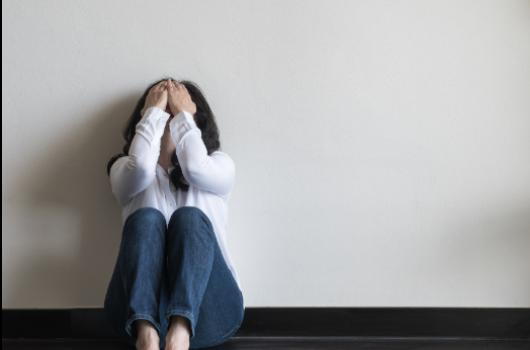Understanding Life with Anxiety
posted: Mar. 02, 2022.

Anxiety is a mental and physical response to stressful, dangerous, or unfamiliar situations. It is often accompanied by an increased heartrate and elevated blood pressure as the body prepares to enter fight-or-flight mode. Many people experience feelings of apprehension, agitation, and dread, as well as sleeplessness and streams of negative thoughts.
Everyone has experienced some degree of anxiety, such as when they are asked to give a presentation at work, need to make a major decision, or must deal with a sudden physical threat.
This response can be positive, as it can make us more focused on a task, more thorough in our decision-making, or more aware of threats to our well-being.
However, anxiety can also develop to an abnormal level, and rather than benefitting a person, the anxiety may actually render the person mentally, physically, or emotionally paralyzed, unable to respond effectively or rationally in the critical circumstance. Intense anxiety often interferes with their life on a daily basis, comes on suddenly and frequently, is disproportionate to the circumstances that trigger it, and may last for extended periods of time. Anxiety responses of this intensity and frequency are called “anxiety disorders.”
Coping Strategies
When an anxiety disorder arises, sufferers can use various proven tools and techniques to manage the anxiety in such a way as to control the negative effects of it and improve their responses to the situation.
Breathing exercises are a commonly offered coping strategy for anxiety. This technique is said to calm the nerves. However, deep breaths are not necessarily more effective. In fact, some experts claim that deep breathing can actually make hyperventilation worse. They recommend taking short, shallow breaths instead.
Focusing on your five senses is another widely recognized anxiety coping skill, and it is a type of grounding exercise. Grounding exercises may help calm you by transferring your focus away from anxiety-inducing thoughts and onto aspects of your physical surroundings.
Using the 5-4-3-2-1 technique, for example, you concentrate on each of your five senses in succession:
Identify 5 objects you can see.
Identify 4 objects you can feel.
Identify 3 objects you can hear.
Identify 2 objects you can smell.
Identify 1 object you can taste.
Another grounding exercise, the 3-3-3 rule, consists of three actions:
Observing your surroundings and identifying 3 objects you can see
Listening to your surroundings and naming 3 sounds you can detect
Moving 3 of your body parts
Taking Control
Anxiety doesn’t have to mean missing out on professional interactions with your coworkers and social interactions with your family and friends. You can learn and apply many coping skills on your own. In addition, you can consult a mental health professional to guide you in choosing more complex treatment options based on your specific needs.
The most important step is acknowledging that anxiety is keeping you from living your life as you want to live it. The second step is understanding that you’re not powerless against anxiety, and that a happier, more fulfilling life is within your reach.
If you are struggling with anxiety and feelings of overwhelm reach out and call RSL Counseling and Coaching at 732 589-1780 schedule an appointment and start feeling better.